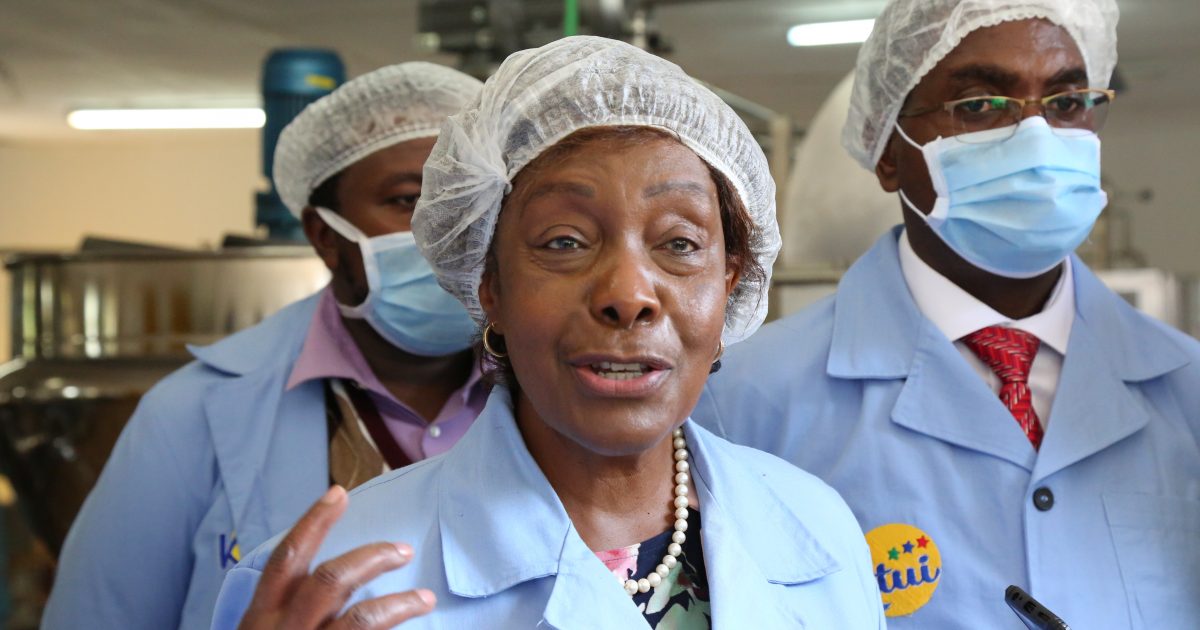Kitui County Governor Charity Ngilu has commissioned a Sh20 million fruit processing plant to mitigate post-harvest losses, leverage on value addition and increase farmers’ profitability.
The food processing machinery has a production capacity of 5 tonnes per hour which translates to 40 tonnes in an 8-hour working day, thus 200 tonnes five days per week and 800 tonnes in a month.
Ngilu said that fresh tomatoes will be processed at the plant to manufacture tomato puree/ketchup, tomato concentrate and tomato paste with a shelf life of two years without additives.
Speaking at the Agricultural Training Centre (ATC) in Kitui Monday, the governor pointed out that the plant will be used for tomato and fruits value addition.
She revealed that the post-harvest quality and shelf life of the fruit in part will depend on some post-harvest handling practices and treatments carried out after harvest.
Ngilu said that handling practices like harvesting, pre-cooling, cleaning and disinfecting, sorting and grading, packaging, storing, and transportation played an important role in maintaining quality and extending shelf life.
“Food processing offers opportunities for villagers to diversify their sources of income. When farmers in an area grow similar crops, processing helps to avoid the effects of lowered prices and incomes when seasonal gluts occur at harvest time,” said the Governor.
She said that processing also enables farmers who grow low-value staple crops to add value and increase household incomes.
“Quality final products like tomato sauces, ketchup, and tomato paste and fruit juices will now be processed and packaged right here in Kitui by our very well-trained youth,” she said.
The governor said the setting up the Kitui Foods plant will create job opportunities and create a ready market for the farmers’ produce.
“Kitui farmers will pocket better earnings for their produce and be assured of a steady income from their self-employment in horticulture,” reiterated Ngilu.
The governor said that fruit prices will be dictated by the supply and demand chain, adding that farmers will get value of their produce at competitive market prices.
“We will organize the farmers to form cooperative societies so that they can have a strong bargaining power and lock out middlemen bent to swindle their hard-earned sweat,” noted Ngilu.
By Yobesh Onwong’a





